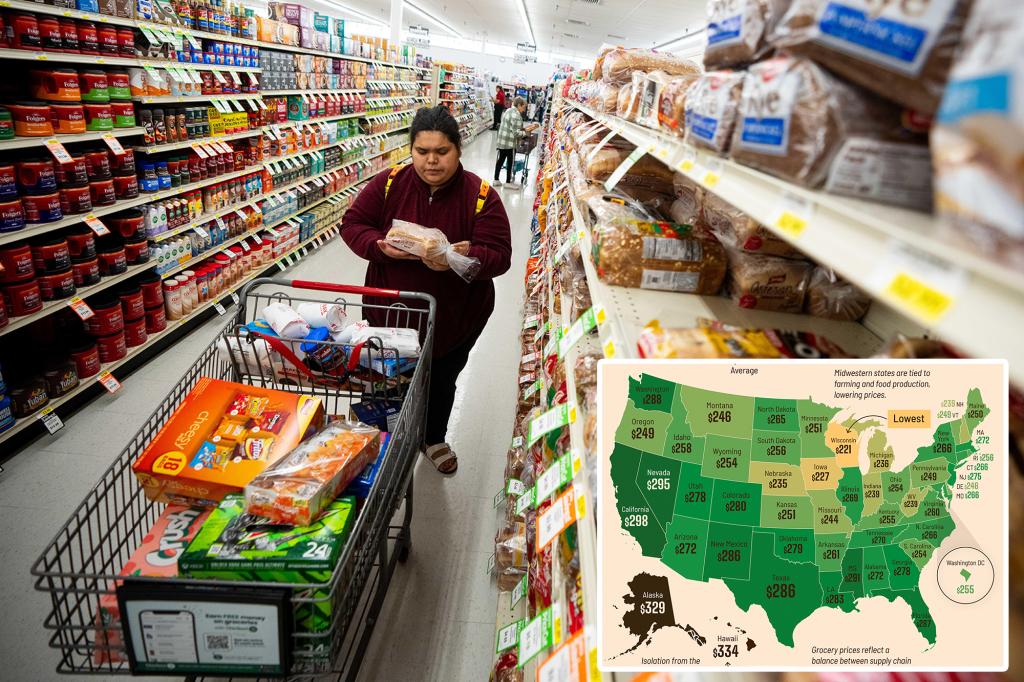Summarize this content to 2000 words in 6 paragraphs
Price check!
The sky-high cost of a supermarket shopping trip continues to be a major issue for Americans, according to new data — despite slowing inflation after 2022’s shocking highs.
Recent findings from the Bureau of Labor Statistics show that overall food costs for urban consumers have inched up another 2.1% from October 2023 to last month — causing further pain in the wallet as US households struggle in the wake of record jumps in recent years.
Census Bureau data analyzed by Delish revealed that in October of 2023, the average family in the U.S. was shelling out $270 weekly — or a whopping $1,080 every month — to keep refrigerators full.
According to a report from Visual Capitalist, grocery store goers in several states are paying far more.
As expected, due to logistical costs outside of the Lower 48, Hawaii pays a weekly average of $334 and Alaska $329, making them the two priciest in the nation.
However, things aren’t so much better on the mainland. In third place, California flirts with unaffordability at $298, followed by Nevada at $295 and Mississippi — the poorest state out of 50 — at $291, to round out the top five.
In the tri-state area, New Jersey is the hardest hit overall at $275 — the 15th most pricey in the country.
New York and Connecticut tied with Maryland and North Carolina for 21st at $266 weekly — though NYC shoppers can often expect to pay far more than their fellow Empire Staters far to the north.
Locally, Pennsylvania gets the most bang for the buck at $249 per week — the 40th cheapest overall.
But it’s America’s Dairyland — Wisconsin — that receives the most value for money, paying $221 per week.
The 10 most expensive states in the US for groceries in 2024
Hawaii, $334
Alaska, $329
California, $298
Nevada, $295
Mississippi, $291
Washington, $288
Florida, $287
(tie) New Mexico, Texas, $286
Louisiana, $283
Colorado, $280


